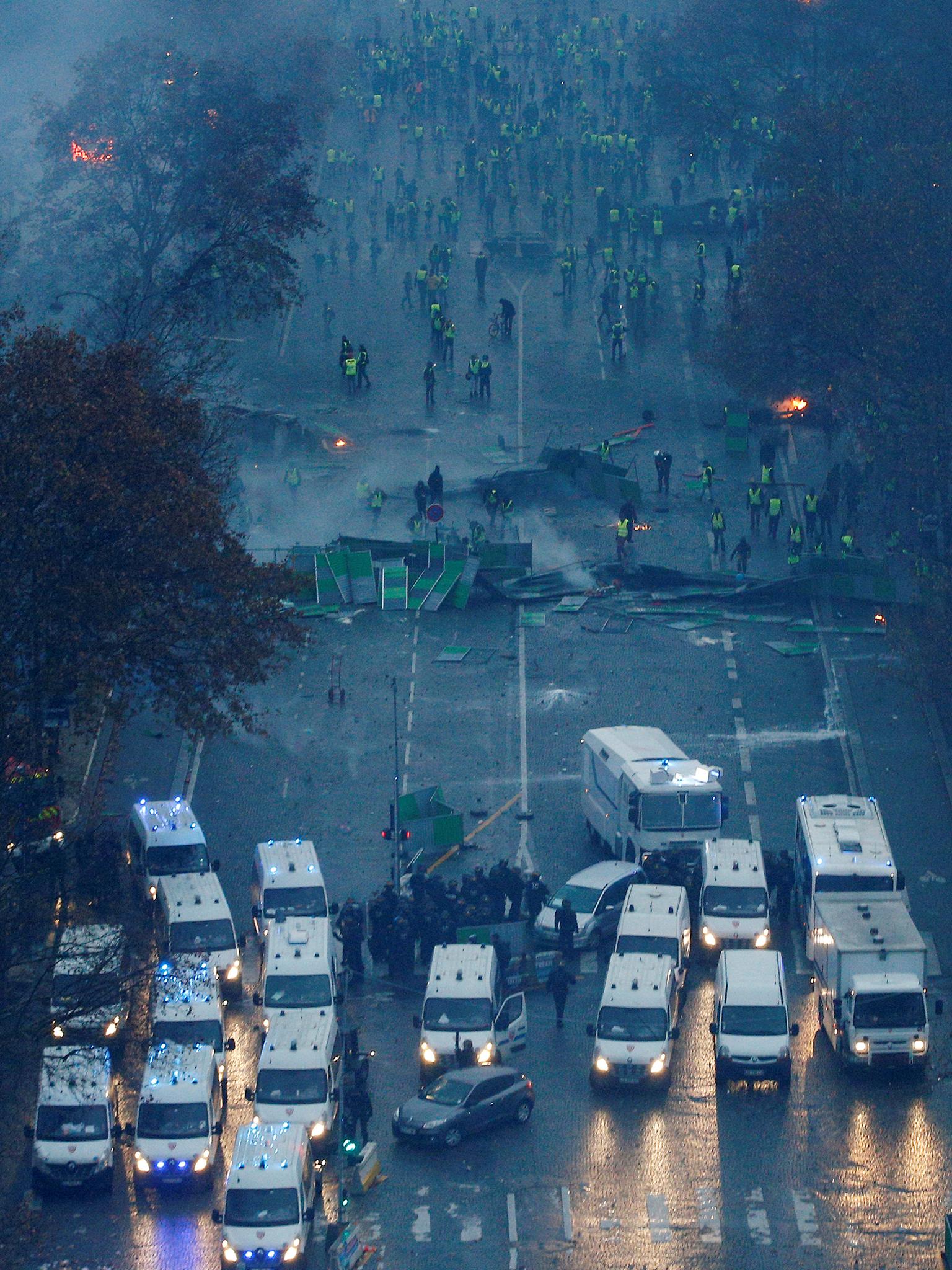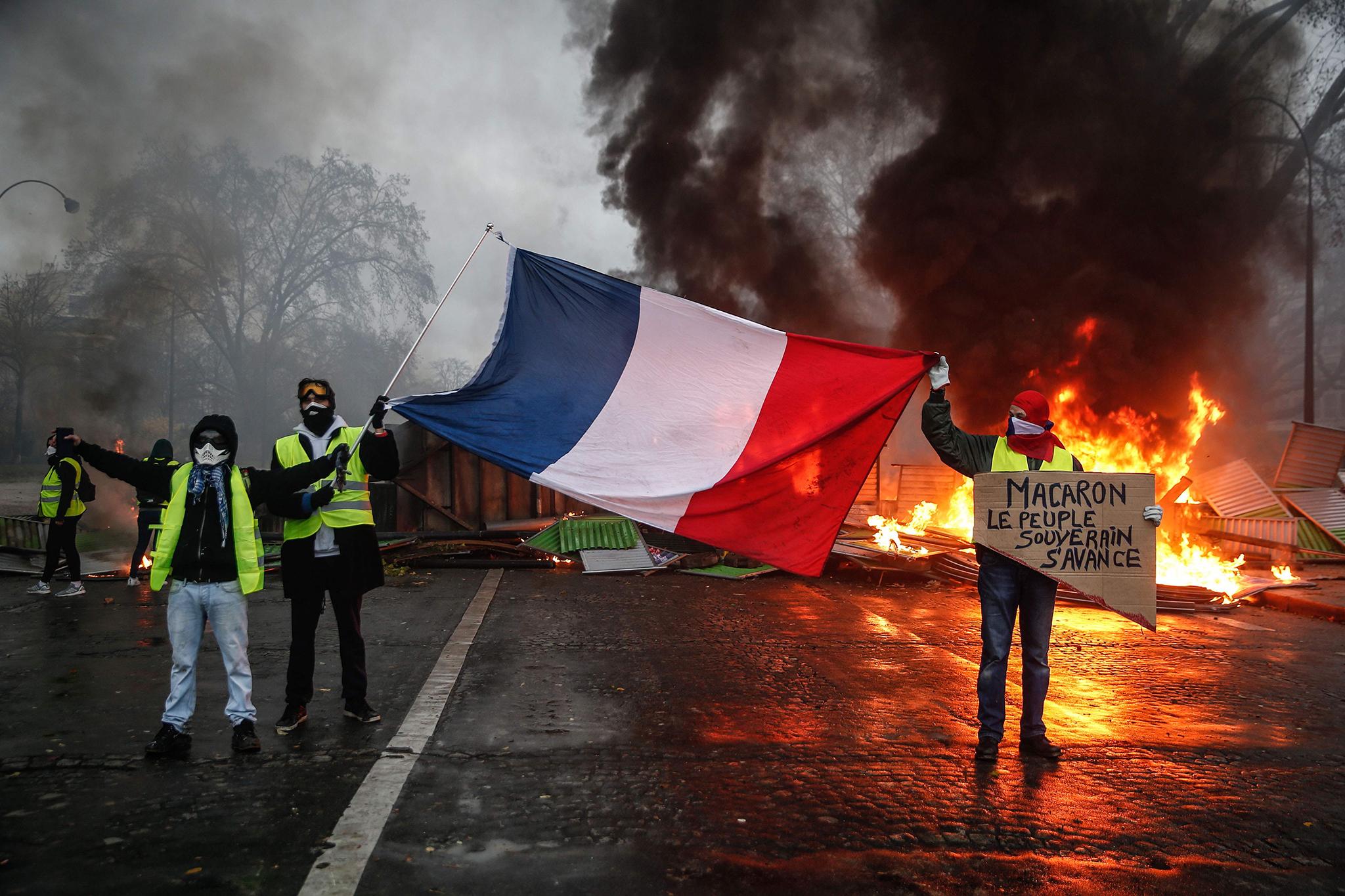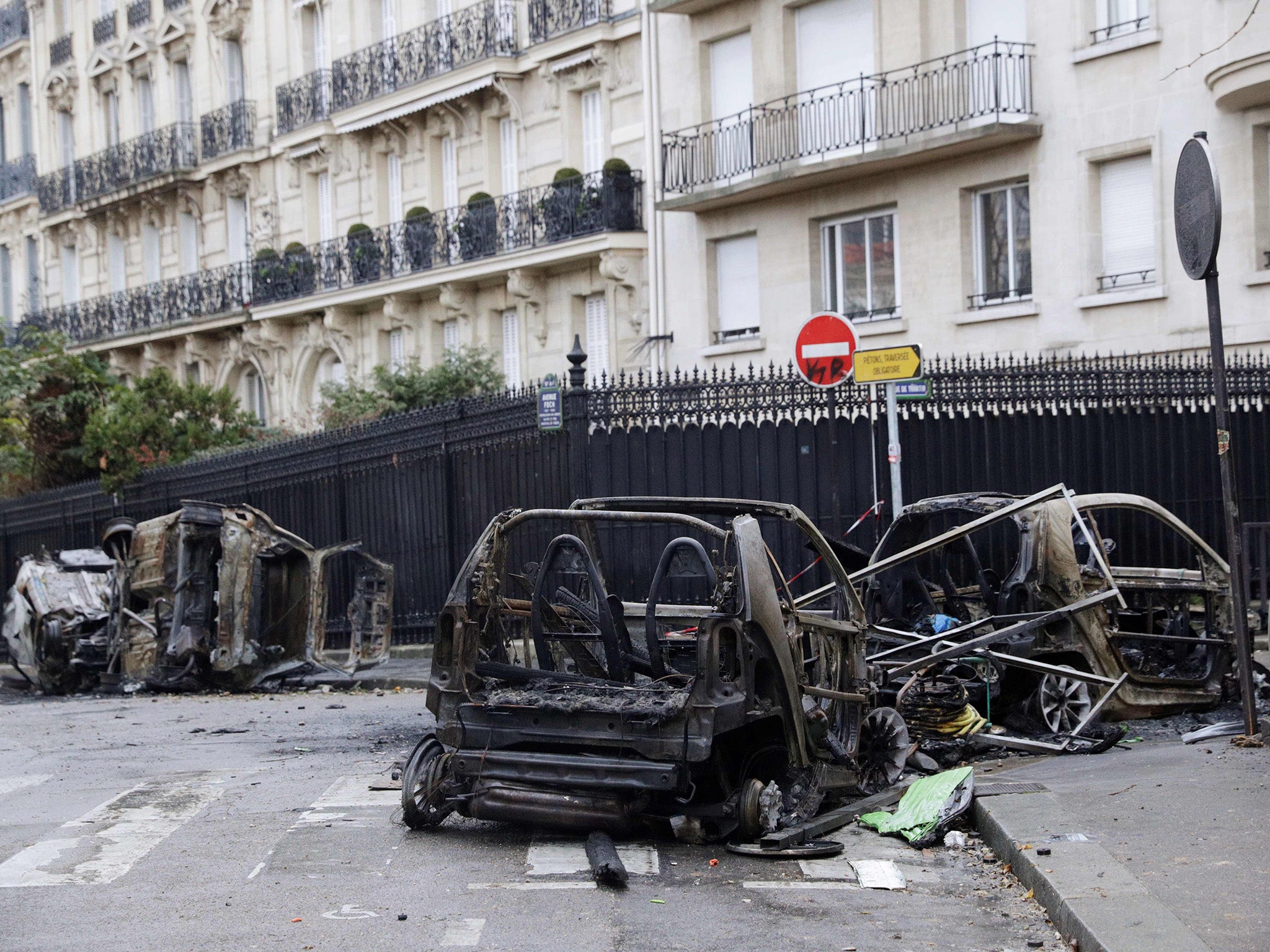Paris protests: Emmanuel Macron orders PM to hold talks with ‘yellow vests’ protesters after violent clashes
More than 100 people injured on third straight weekend of civil unrest in the French capital

Your support helps us to tell the story
From reproductive rights to climate change to Big Tech, The Independent is on the ground when the story is developing. Whether it's investigating the financials of Elon Musk's pro-Trump PAC or producing our latest documentary, 'The A Word', which shines a light on the American women fighting for reproductive rights, we know how important it is to parse out the facts from the messaging.
At such a critical moment in US history, we need reporters on the ground. Your donation allows us to keep sending journalists to speak to both sides of the story.
The Independent is trusted by Americans across the entire political spectrum. And unlike many other quality news outlets, we choose not to lock Americans out of our reporting and analysis with paywalls. We believe quality journalism should be available to everyone, paid for by those who can afford it.
Your support makes all the difference.Emmanuel Macron has ordered his prime minister to hold talks with political leaders and “yellow vests” demonstrators, after more than 100 people were injured in violent clashes over rising fuel taxes on Saturday.
A French presidential source said Mr Macron would not speak to the nation on Sunday, despite calls for him to offer immediate concessions to protesters.
Reports earlier in the day suggested the French president was considering declaring a state of emergency in response to the violence.
Government spokesperson Benjamin Griveaux told radio station Europe 1, “all options must be studied” when asked whether it was a realistic option for the government.
However, a source told Reuters the idea was not discussed at an emergency government meeting held by Mr Macron, prime minister Édouard Philippe and interior minister Christophe Castaner on Sunday.
Mr Griveaux also said the government would not reverse its policy to stop protests from escalating.
“We won’t change course. We are certain of that,” he said.

His comments followed a statement released by the Alliance Police Nationale union yesterday, which called for a state of emergency to be imposed.
The nationwide protests, led by the “yellow vests” movement, began on 17 November and aim to oppose rising taxes and living costs under the Macron government.
It was reported Mr Macron would use the meeting to discuss how to effectively communicate with the movement, which has no clear leadership and has grown quickly through social media.
Police in Paris said 133 people were injured during Saturday’s protest, including 23 police officers, and 412 people were arrested.
Although the protests started to oppose increases in fuel taxes – which have gone up 23 per cent in 12 months in some cases – they have grown into a wider movement expressing discontent with Mr Macron’s government.
Authorities said violent groups from the far left and nationalist far right have infiltrated the protests and were responsible for some of the rioting on Saturday.

A police assault rifle was stolen by protesters, and a dozen vehicles were set on fire by groups of young men wearing masks, some carrying metal bars and axes, according to Reuters.
Speaking late on Saturday, Mr Castaner admitted the government had mishandled its communication of the tax rises, which are designed to support France’s environmental policy and reduce car usage.
Critics say they will hurt workers in small towns and rural areas who do not have good public transport links and are forced to drive to work.

Paul Marra, a “yellow vest” activist in Marseille, told French news channel BFM TV the government was to blame for the violence.
“We condemn what happened, but it was inevitable. The violence started from the top. The biggest thug is the state, through its inaction,” he said.
The protests meant yesterday was the third straight weekend of civil unrest in Paris, although protests in other French regions were said to be largely peaceful.
If Mr Macron’s government had declared a state of emergency, it would have been for the second time in a decade, with the move having been taken after the November 2015 terrorist attacks in Paris.
In 2005, then-president Jacques Chirac also declared a state of emergency, after a three-week period of rioting and civil unrest around the suburbs of Paris.
Agencies contributed to this report
Join our commenting forum
Join thought-provoking conversations, follow other Independent readers and see their replies
Comments